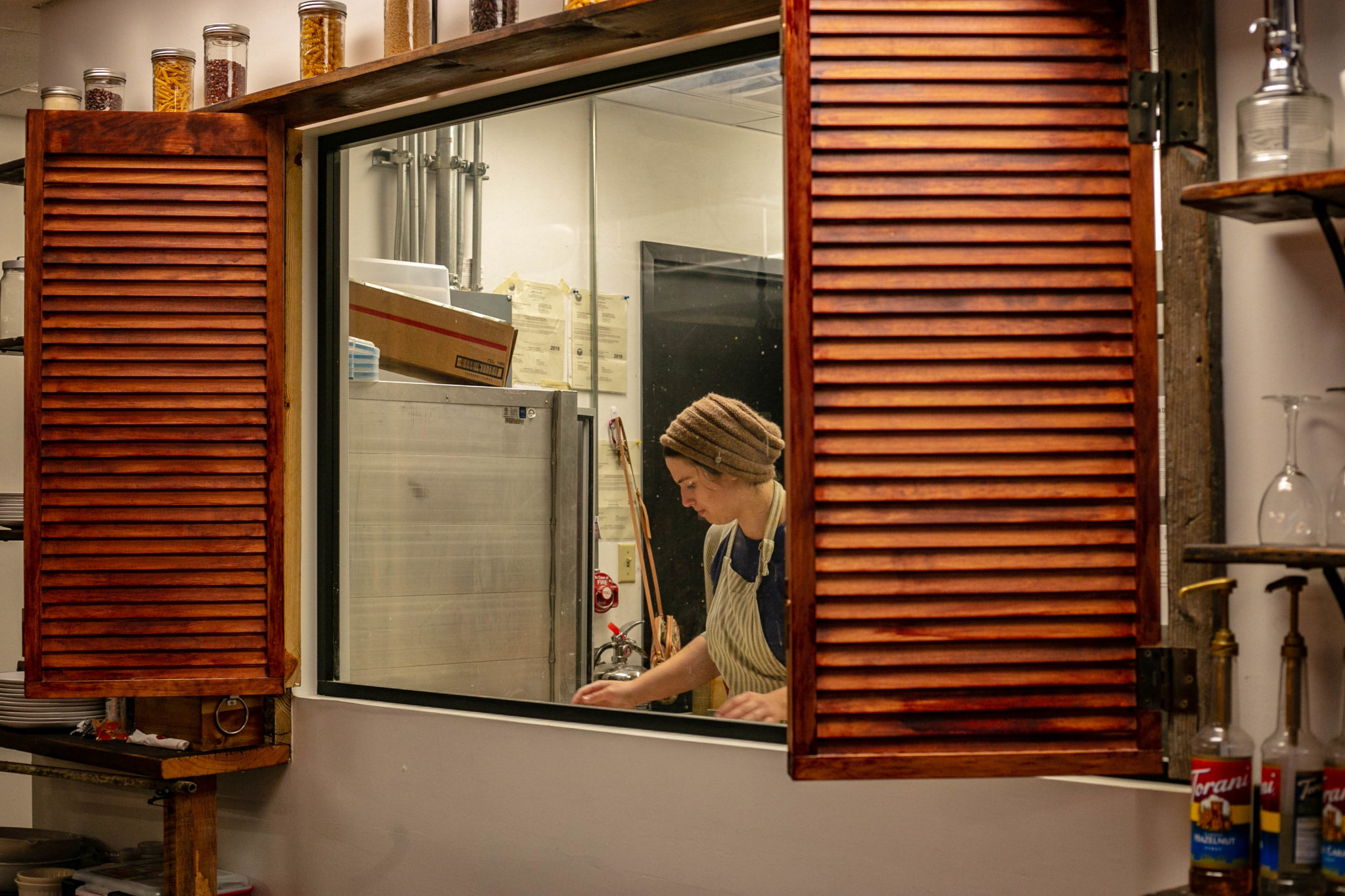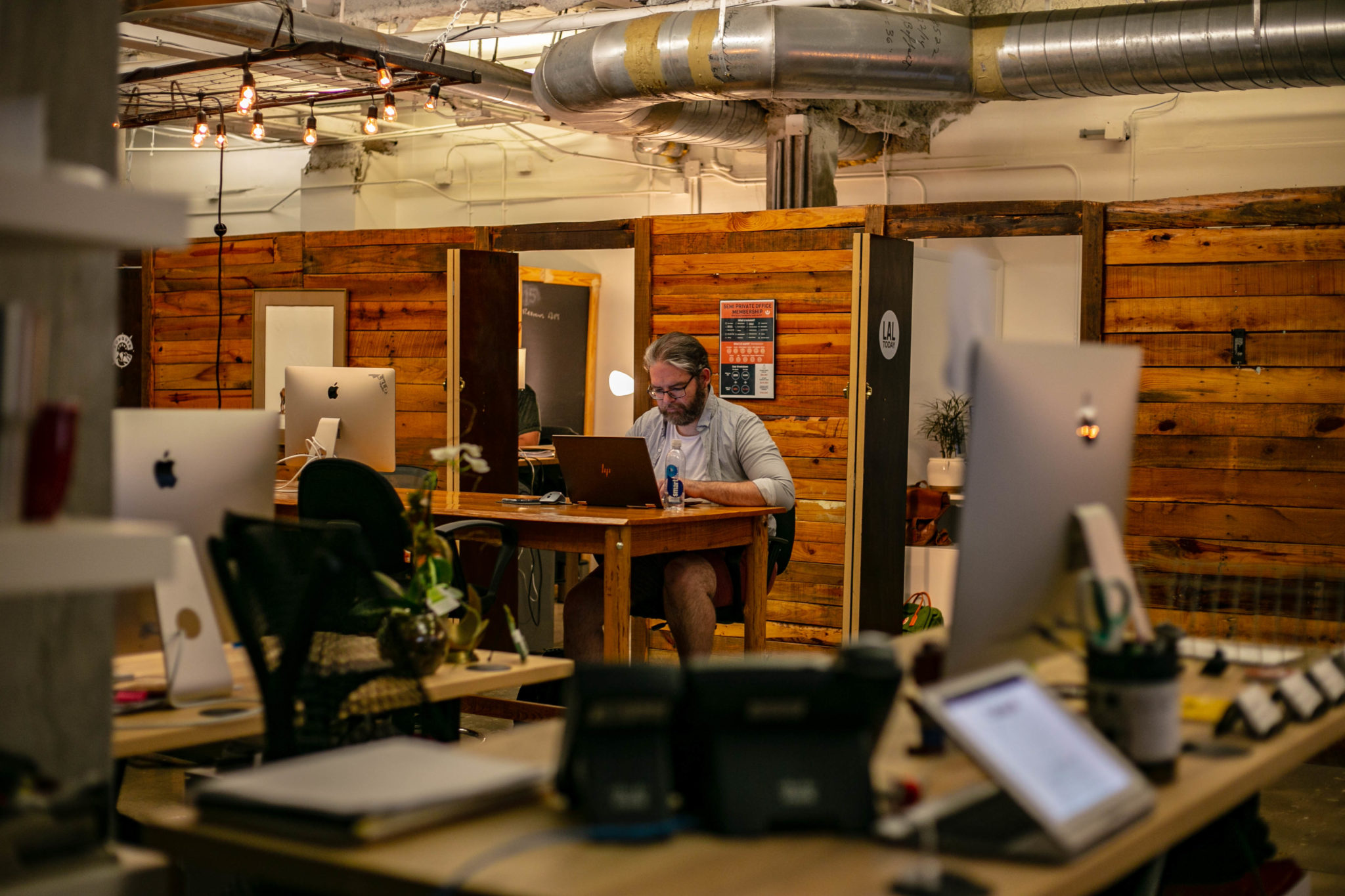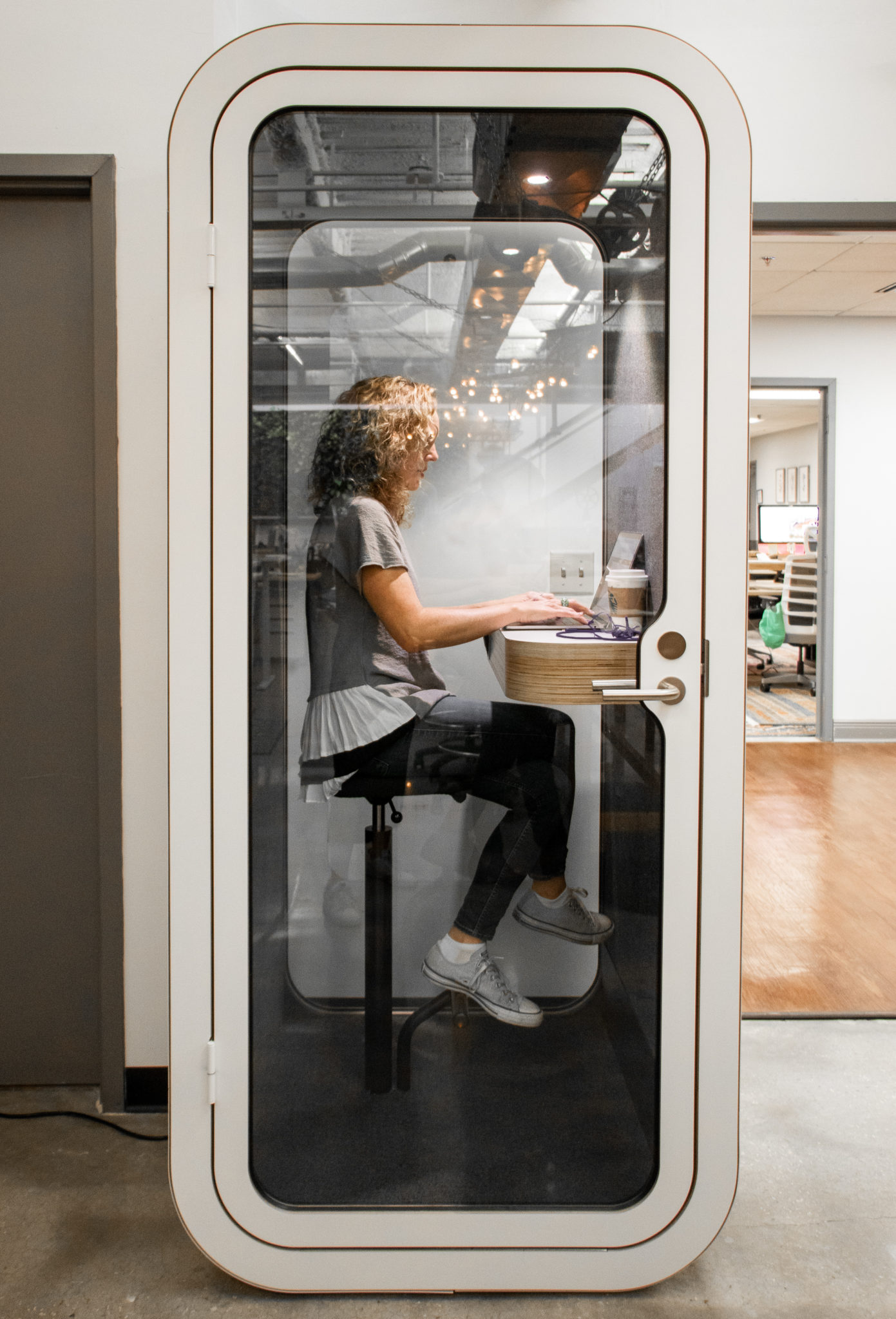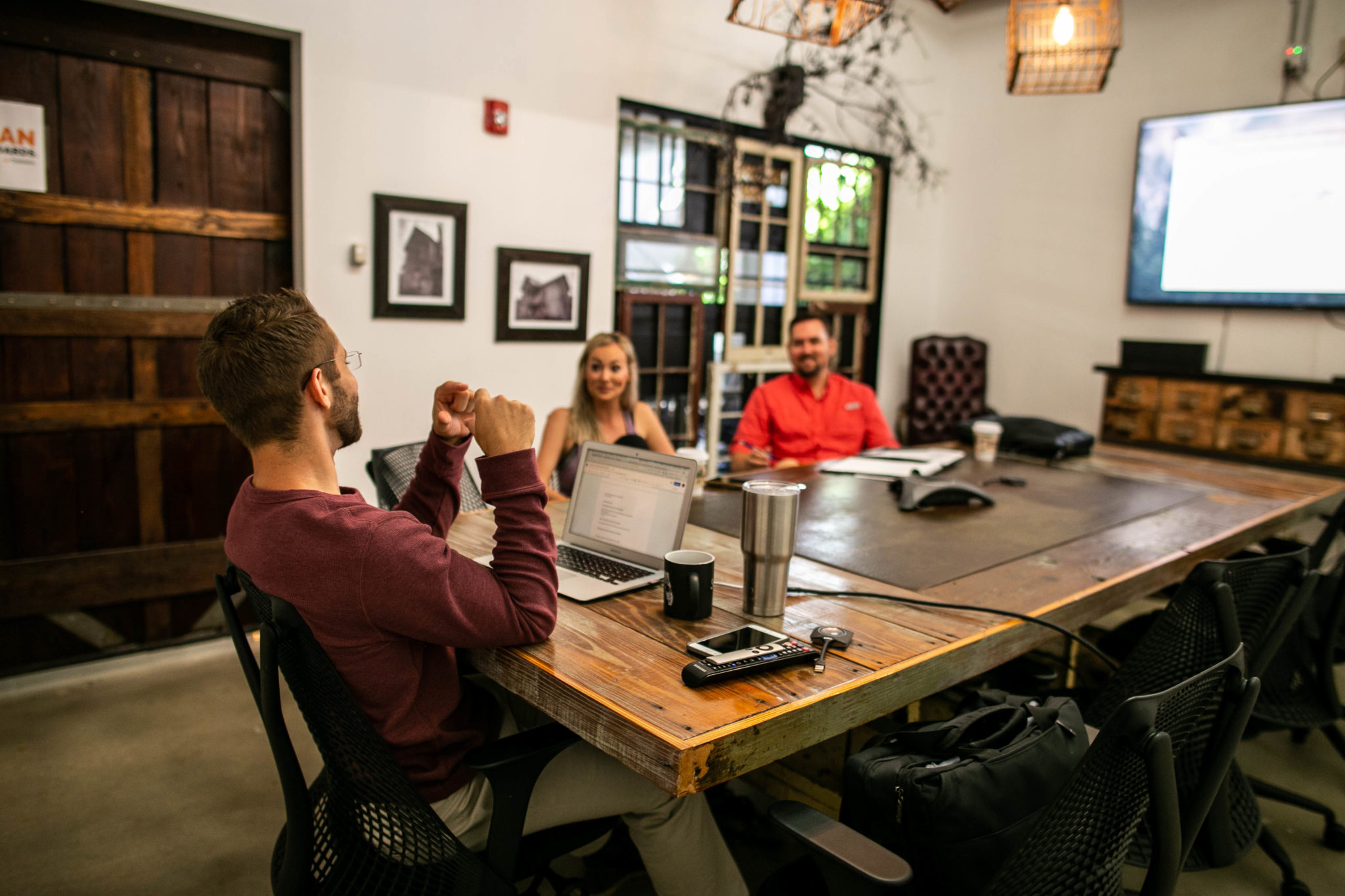Wednesday means you’ve already been working enough to induce some stress. It’s just what happens. So, we’ve compiled a list of ways you can de-stress while at work and a list of things you might be doing in or outside of work that are definitely causing you more stress than necessary.
De-stressors
1. Clean it up
Whether you’re a neat freak or not, having a clean office space (or work bag if you’re a Cat Fam coworking member) is a game changer for productivity. A clean space minimizes the possibility of distraction from clutter and helps prevent you from losing important items in the mess. It also greatly reduces the opportunities for germs to keep you from work with sick days. Most importantly though, a clean space is much better to look at than a messy one.

2. Chat with friends
Extrovert or not, talking with other people is a great source of creative boost. It is easy to get caught in a single thought process with little creative variation when we spend too much time on it alone. Talking with others, regardless of if you are discussing the matter at hand or just stretching your mental muscles, helps to alter your train of thought and opens new avenues that you previously would not have considered.
3. Savor your snack
We are all too familiar with the practice of grabbing whatever the easiest food is an swallowing it before even tasting it. While you might believe this is saving you precious work time, it is not doing you any favors in workflow. Think of your snack as a reward for your hard work and treat it as such.
4. Stretch your muscles
Getting out of your seat has a similar effect to chatting with friends. When we are stagnant for too great an amount of time, we become groggy and lack motivation. A simple five-minute walk every hour keeps your blood, energy, and thoughts constantly flowing.

5. Make a list
Coming to terms with the fact that our brains are not invincible is not fun but has to happen. Remembering everything that we need to do often ends in us feeling like there is something missing and for good reason. Writing down a list, whether on paper or in your device, allows you to release the pressure of trying to remember everything and rather pay all of your energy to the task at hand.
6. Take a breath
No matter who you talk to about stress, one of the recommendations you will always hear is to take a deep breath. It’s a nutty concept, but we do unconsciously tend to hold or shorten our breath under stress. When our bodies lack the oxygen that we need, it is unable to perform at its peak abilities, which causes us even more stress as we begin to feel ill and out of sorts.
Taking a deep “belly-breath,” (a breath in which your stomach extends rather than your chest filling up) allows your thoughts to calm and your body to regulate. Practice taking 3 belly-breaths whenever you are feeling anxious, and then revert to normal breathing.



7. Chew some gum
This one might not be for everyone, but sometimes, having a physical task that doesn’t distract while our brains are busy at work can really stimulate a more consistent and energized workflow. Just be careful not to chew too loudly!
On the flip side of de-stressing tips, we thought it might be helpful to mention some habits you may have in or outside of work that could be raising your stress levels.
Stress Inducers
1. Skipping meals
Skipping meals, be it for dieting or rushing, is doing the opposite of helping your workflow. When you skip a meal, your body assumes that you will not feed it again indefinitely and in turn slows your metabolism. When your metabolism slows, your energy is depleted. When your energy is depleted, you get less done. When you get less done, you are more stressed.
2. Staying up too late
Similar to skipping meals, you do your body a disservice whenever you get less sleep than you need. The Sleep Foundation has released study results that conclude adults between 18 and 64 most often need seven to nine hours of sleep–six hours being the minimum a person can sleep without suffering negative effects including major lulls in energy and health dilemmas.



3. Drinking coffee
Yes, the liquid gold that we tend to consume by the gallon does have the potential to harm us. The true culprit is caffeine, which when over-consumed hosts a slew of negative long-term effects. Right now though, the stimulant that helps you jump-start your day is also, unfortunately, likely keeping you up at night. Additionally caffeine is, depending on the person, highly capable of causing drinkers to suffer from anxiety due to the overactivity occuring in the brain.
4. Being glued to your phone
…or any other device. The constant influx of data being streamed on a daily basis is more than enough to cause stress. It is good practice to step back and truly do nothing whenever we say we’re doing nothing, but are actually scrolling through social media.

5. Allowing work to overflow
We’ve all been here! Whenever we allow our work to become too much, our anxiety levels are almost guaranteed to peak as we scramble to get it all done. Do yourself a favor and, whenever possible, avoid procrastination!

6. Binging shows/movies
Sometimes it feels really good to sit back, relax, and watch an entire season of our favorite show. In the moment we believe that this is making us feel better, but in reality we are actually are often wasting time that we could be using to exercise, straighten our home, and spend time with friends and family, all of which are some of the previously listed de-stressors.
7. Letting relationships slide
No matter how important our work feels, it should never take the place of our family and friend relationships. Without the people surrounding and supporting us, our work tends to lose its meaning. Don’t take your people for granted!
Stress is something that we’re all going to deal with at some point during our careers, so finding ways to manage it is a must. Consider implementing some of these tips into your routine and correcting the habits that are listed (or not!) that are causing you grief. You will thank yourself in the long run!
If this post has inspired you to create your own business or aroused questions about Catapult/entrepreneurship in general, be sure to reach out to us at Catapult using the email catapultlakeland@gmail.com or give us a call at 863-940-9660.


0 Comments